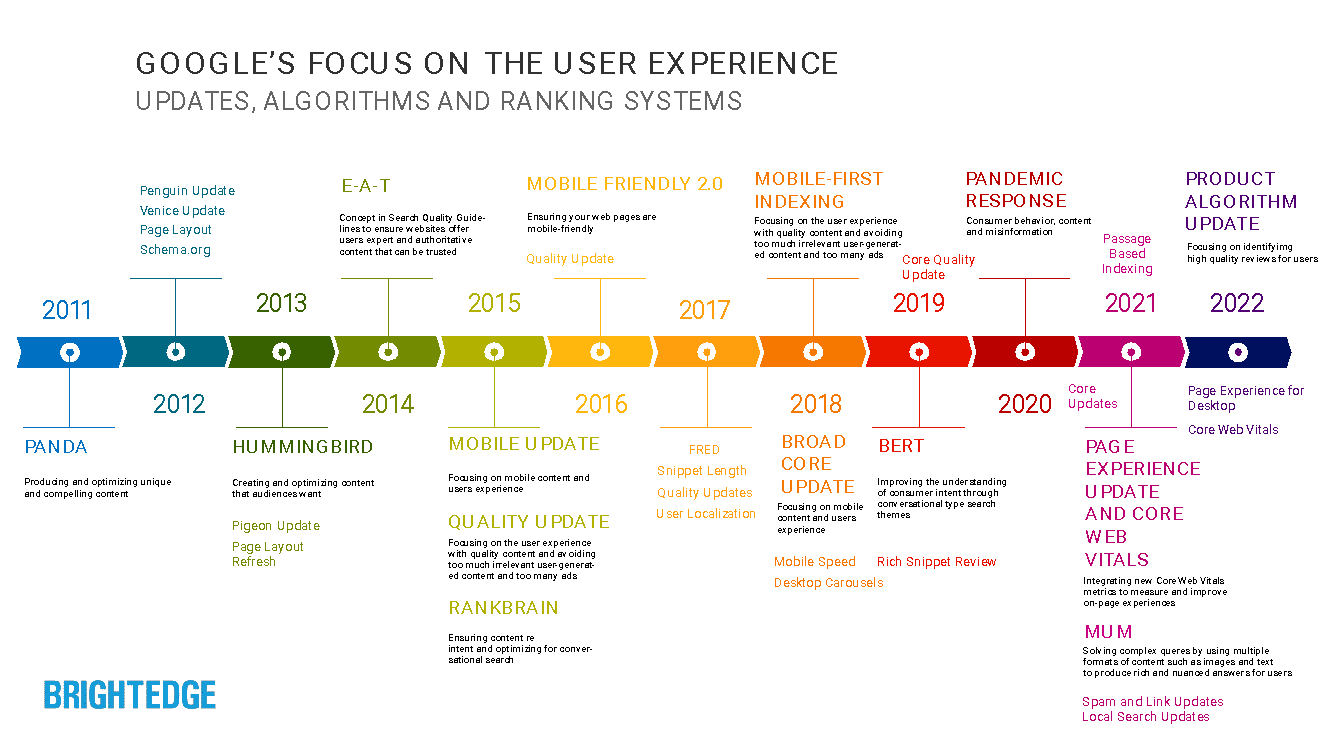Google’s recent core update (Released on March 15, 2023, and the rollout may take up to 2 weeks to complete) has been the talk of the SEO community. As a website owner or digital marketer, you may be wondering what this update means for your website’s search rankings and overall SEO strategy. In this blog post, we’ll dive into the specifics of this update and how it will impact SEO moving forward.
What is a Core Update?
First, let’s start with what a core update is. As stated by Google, core updates are significant, broad changes made to search algorithms and systems designed to improve the quality of search results. These updates happen several times a year and can significantly impact search rankings.
Google’s core updates are designed to improve the quality of search results by rewarding pages that provide helpful and reliable content while penalizing those that don’t. This means that after a core update, some websites may experience a drop in search rankings while others may see an increase.
How the Recent Core Update Works
According to Google, the recent core update does not target specific pages or websites. Instead, the update is designed to improve how Google’s search algorithms assess content overall. Pages that may have been under-rewarded in the past may see an increase in search rankings after the update.
One way to think about the recent core update is to imagine a list of top movies. A few years later, when the list is updated, some new and wonderful movies that didn’t exist before become candidates for inclusion. Similarly, some previously lower-ranked movies may move up the list due to reassessment.

Assessing Your Content
If your website experienced a change in search rankings after the core update, it doesn’t necessarily mean that your content violated any spam policies. Instead, it’s an indication that your content may not be as helpful or reliable as other pages that are ranking higher.
To assess your content, Google suggests focusing on providing the best possible content for your audience. This means creating content that’s helpful, reliable, and people-first. You can ask yourself a series of questions when assessing your content, such as:
- Does my content provide value to my audience?
- Is my content accurate and reliable?
- Does my content address the user’s query?
It’s also important to conduct an audit of the pages that were most impacted by the core update. Look at the types of searches these pages were ranking for and assess how well they answer the user’s query. You can also have others honestly assess your content to gain valuable feedback.
How Long Does It Take to Recover from a Core Update?
The impact of a core update can take time to settle, and content that was negatively impacted may not recover until the next broad core update is released. However, Google also makes smaller core updates that may go unnoticed but can still impact search rankings.
It’s important to note that improvements made to your website do not guarantee recovery, and there’s no static or guaranteed position in Google’s search results. If more helpful and reliable content is available, it will continue to rank well with Google’s search algorithms.
How the Recent Core Update Will Impact SEO
The recent core update reinforces the importance of creating high-quality, helpful, and reliable content for your audience. Websites that prioritize user experience and provide valuable content will likely see an increase in search rankings. This update also highlights the importance of regularly auditing your website’s content and making necessary improvements. By addressing any gaps in your content strategy and focusing on providing value to your audience, you can position your website for long-term SEO success.
In conclusion, Google’s recent core update serves as a reminder that SEO is constantly evolving, and staying up-to-date with the latest changes is essential to maintain and improving your website’s search rankings.







